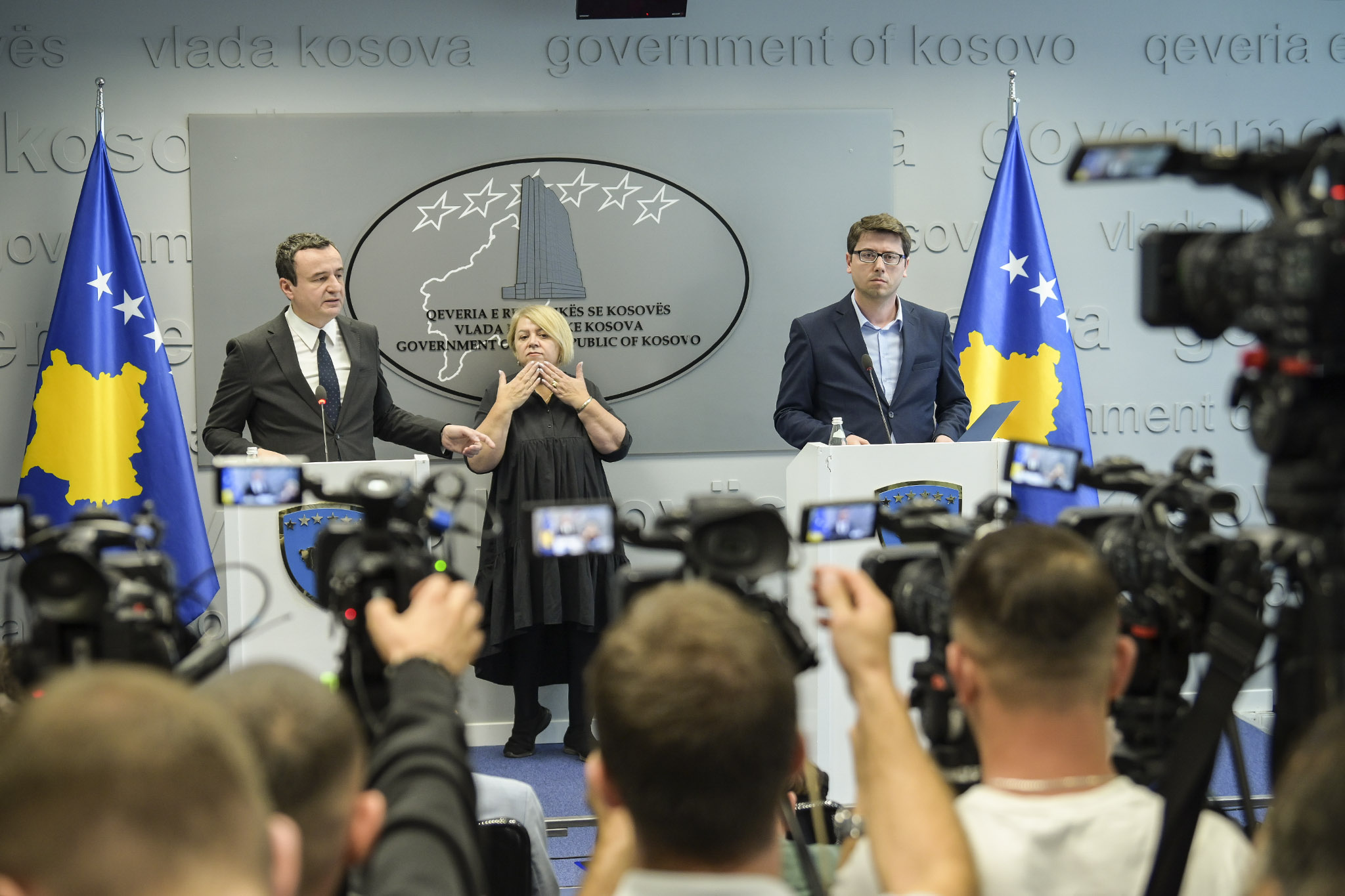

A few months ahead of the parliamentary elections, Kosovo PM Albin Kurti announced a 20 percent increase in pensions for various categories of retired people, a move the opposition has called an attempt to “buy votes.”
Kosovo Prime Minister Albin Kurti announced on Monday that the government will increase pensions by 20 percent, a move the opposition claims is meant to “buy votes” in the February 2025 parliamentary elections.
“Our work to increase support for pensioners does not end here. It continues further, specifically with our efforts towards completing the pension reform, which will ensure that those who contributed the most to this country will receive the appropriate care,” Kurti said.
The pensions set to increase starting in October include the basic old-age pension, contributory pensions, disability pensions for children and adults, pensions for blind persons, paraplegics and tetraplegics, family pensions, work-related disability pensions, and early retirement pensions for workers of Kosovo’s Trepca mines.
Hekuran Murati, Kosovo’s Minister of Finance, claimed that “more than 300,000 pensioners will benefit from this increase… [and] an additional 100 million euros will be allocated annually following this increase.”
Pensions in Kosovo currently range from 100 to 265 euros a month. With the increase, they will range from 120 to 318 euros.

In mid-August, the Kosovo Ministry of Finances told BIRN that 149,504 pensioners receive a basic pension. Currently, 55,410 people in Kosovo receive a contributory pension between 182 euros and 265 euros. With the new increase, they will receive a pension ranging from 218.40 euros to 318 euros.
Kurti told the media that as of January 2025, there will also be a 20 percent increase in pensions of “war-related categories,” which includes families of martyrs, war invalids, veterans, members of the former Kosovo Liberation Army, victims of wartime sexual violence, civilian victims, and their families.
The Kosovo opposition claimed that the move is political and aims to win votes for a new term in February next year.
Hykmete Bajrami, MP and former finance minister from the opposition party Democratic League of Kosovo, LDK, wrote on Facebook that “increasing wages, pensions, and distributing taxpayers’ money in any form during an election campaign is an attempt to buy votes, a public corruption scheme.”
In late August, the Kosovo government also doubled the minimum wage to 350 euros per month, days after an amended law on Minimum Wage was enforced. Experts told BIRN in mid-September that the increase would not necessarily affect economic growth but might win votes.
The Kosovo Government’s decision comes shortly before the scheduled parliamentary elections, which are set to be held on February 9, 2025.
By law, pensions must be adjusted annually, taking into consideration budget constraints, cost of living, and inflation. However, they have failed dramatically to keep pace with prices, which shot up 11.6 percent in 2022 alone.
According to data from the Kosovo Agency for Statistics, last year, the basic consumer basket – including basic food items and medical appointments, but excluding rent – cost 284.42 euros, which is higher than any current state pension. According to such figures, those on a basic pension of 100 euros find themselves 184.42 euros short every month, just for the necessities. The same basic goods cost 216.80 euros in 2019.
With the pension increase, only those with a graduate degree (whose pension will become 318 euros) will be able to afford this basic consumer basket, assuming the prices remain unchanged from last year.
07 October 2024 - 17:16

Court orders detention of four local Serbs arrested on suspicion of ki...

Kosovo PM Albin Kurti first came to power in a landslide win in 2021, ...

In Kosovo’s public discourse, early pregnancies are frequently portr...

A significant portion of the information consumed by the citizens of K...